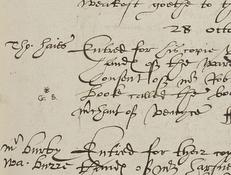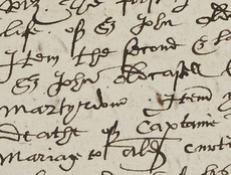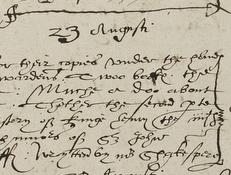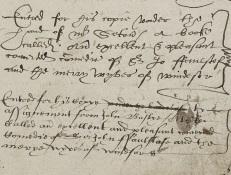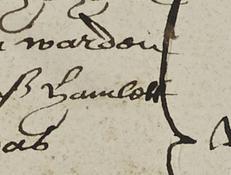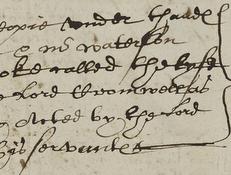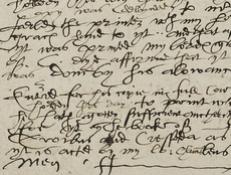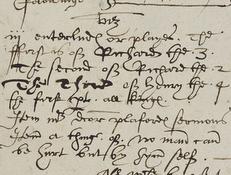From 1557, no one was allowed to print in England unless they were a member of the Stationers’ Company (a London-based trade and craft organization) or held a royal “privilege.” In order to protect members’ interests, the Company required that anyone wanting to publish a work had to seek authorization from senior company officers. This protected the work from being reprinted or commercially threatened by other members without permission. Obtaining authorization was compulsory, but the member also had the option of entering the work’s title into the “Stationers’ Register,” which had the advantage that the publisher was not depending solely on the memory of the officers or the retention of the original signed manuscript to defend his or her rights.
For the first twenty-five years, permission was conditional on publication of the work; after that, the act of permission itself granted immediate protection. These publishing rights—or “copy”—were initially understood to last for an individual’s lifetime, although by the early seventeenth century they were considered perpetual and could be bequeathed or transferred to any other member.
The Register thus records the right to publish (not the publication itself) of many, but not all, works published in England during Shakespeare’s lifetime. When Isaac Jaggard and Edward Blount entered the First Folio in November 1623, they could only enter those works for which no previous right to publish had been asserted, and had to negotiate agreements with publishers who already owned the rights to publish specific plays.
The Register was central to the Copyright Act of 1710, and remained a key element in copyright legislation until the Copyright Act of 1911. The rights to publish Shakespeare’s works were bequeathed and traded throughout the seventeenth and eighteenth century. The Register contains 34 entries for Shakespeare’s plays and poems, up to and including the First Folio (1623).
The Register contains records from 1557 to 1911 (apart from 1571–6); the pre-1842 volumes are held at Stationers’ Hall in London.
Contributed by Ian Gadd.

